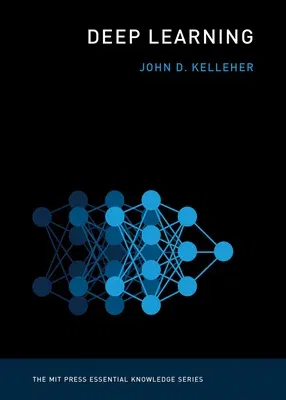An accessible introduction to the artificial intelligence technology
that enables computer vision, speech recognition, machine translation,
and driverless cars.
Deep learning is an artificial intelligence technology that enables
computer vision, speech recognition in mobile phones, machine
translation, AI games, driverless cars, and other applications. When we
use consumer products from Google, Microsoft, Facebook, Apple, or Baidu,
we are often interacting with a deep learning system. In this volume in
the MIT Press Essential Knowledge series, computer scientist John
Kelleher offers an accessible and concise but comprehensive introduction
to the fundamental technology at the heart of the artificial
intelligence revolution.
Kelleher explains that deep learning enables data-driven decisions by
identifying and extracting patterns from large datasets; its ability to
learn from complex data makes deep learning ideally suited to take
advantage of the rapid growth in big data and computational power.
Kelleher also explains some of the basic concepts in deep learning,
presents a history of advances in the field, and discusses the current
state of the art. He describes the most important deep learning
architectures, including autoencoders, recurrent neural networks, and
long short-term networks, as well as such recent developments as
Generative Adversarial Networks and capsule networks. He also provides a
comprehensive (and comprehensible) introduction to the two fundamental
algorithms in deep learning: gradient descent and backpropagation.
Finally, Kelleher considers the future of deep learning--major trends,
possible developments, and significant challenges.


